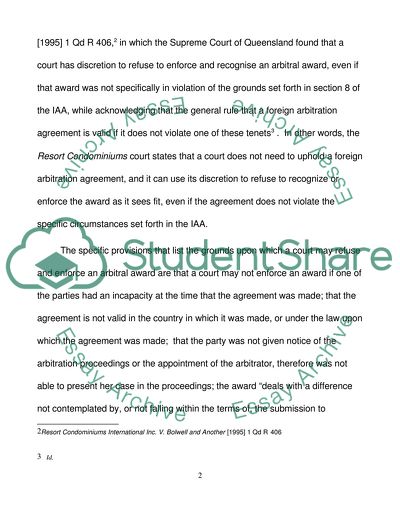Cite this document
(The International Arbitration Act Term Paper Example | Topics and Well Written Essays - 3500 words, n.d.)
The International Arbitration Act Term Paper Example | Topics and Well Written Essays - 3500 words. Retrieved from https://studentshare.org/law/1741698-a-review-of-the-international-arbitration-act-1974-commonwealth
The International Arbitration Act Term Paper Example | Topics and Well Written Essays - 3500 words. Retrieved from https://studentshare.org/law/1741698-a-review-of-the-international-arbitration-act-1974-commonwealth
(The International Arbitration Act Term Paper Example | Topics and Well Written Essays - 3500 Words)
The International Arbitration Act Term Paper Example | Topics and Well Written Essays - 3500 Words. https://studentshare.org/law/1741698-a-review-of-the-international-arbitration-act-1974-commonwealth.
The International Arbitration Act Term Paper Example | Topics and Well Written Essays - 3500 Words. https://studentshare.org/law/1741698-a-review-of-the-international-arbitration-act-1974-commonwealth.
“The International Arbitration Act Term Paper Example | Topics and Well Written Essays - 3500 Words”, n.d. https://studentshare.org/law/1741698-a-review-of-the-international-arbitration-act-1974-commonwealth.


